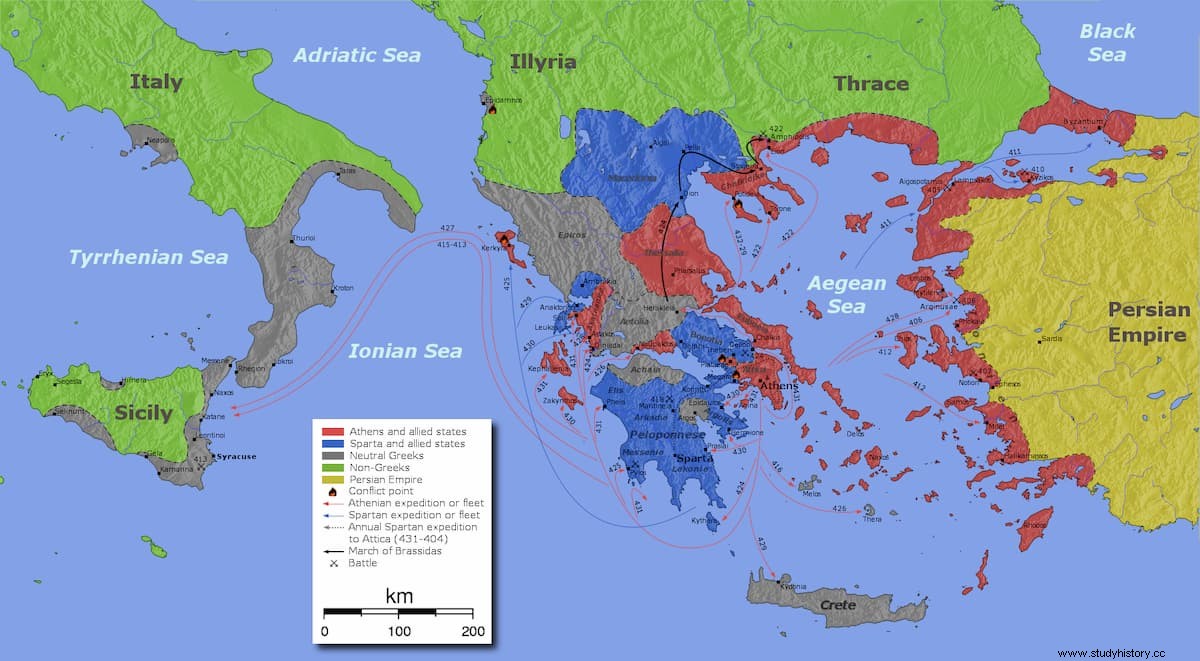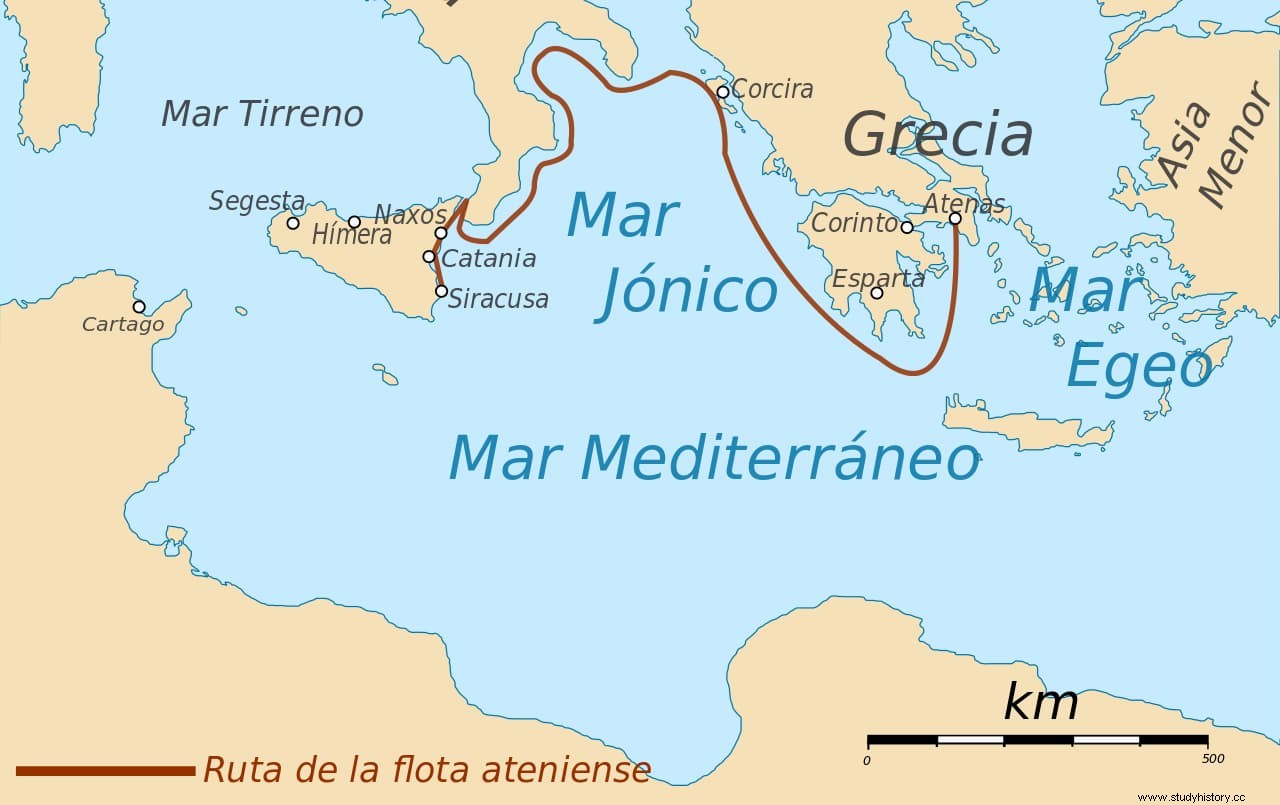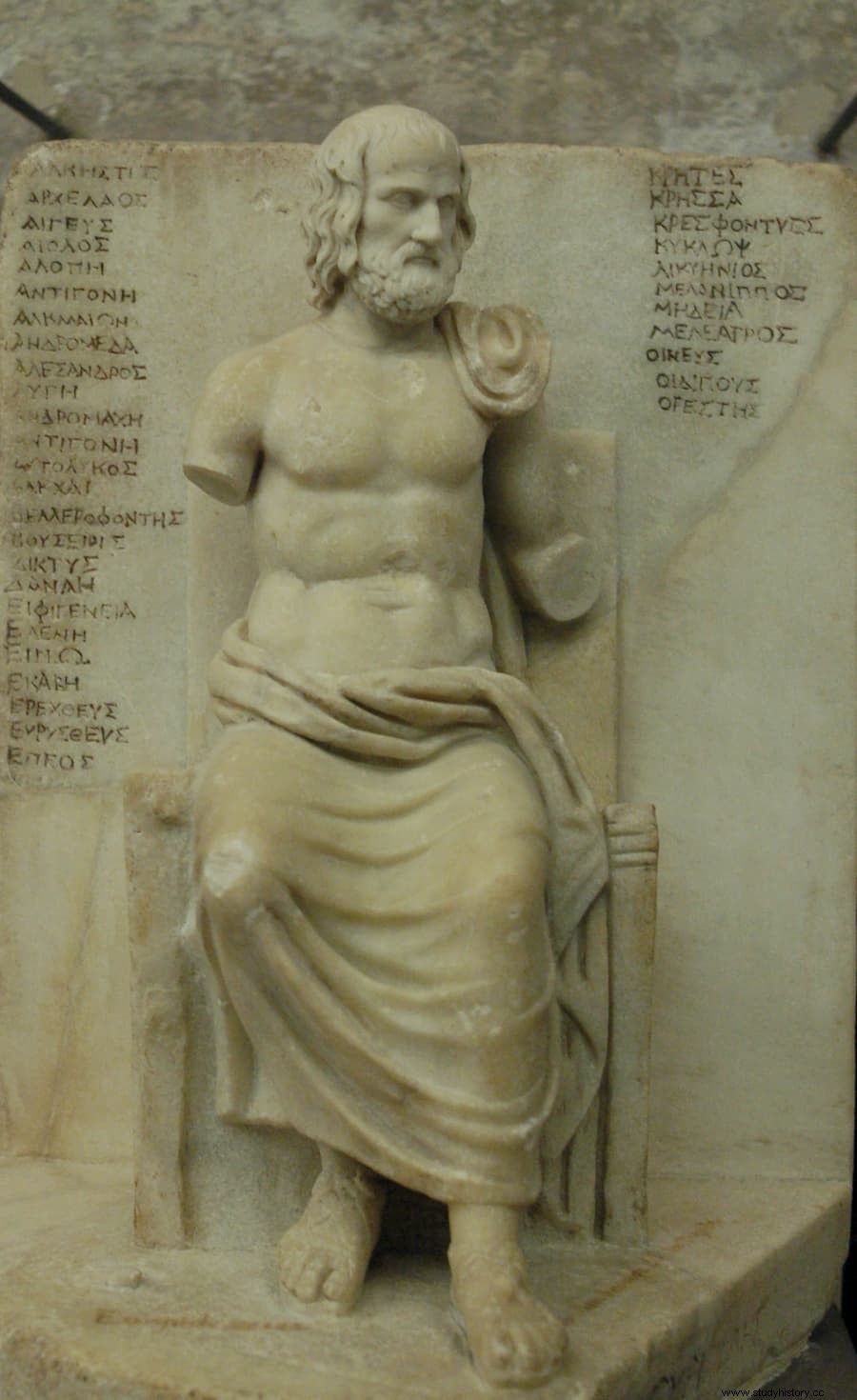When the first phase of the Peloponnesian War ended, in 421 BC, Athens and Sparta signed the Peace of Nicias which was to last 50 years. However, only five years later, an embassy from the city of Segesta, in Sicily, arrived in Athens with an irresistible offer.
It is also true that neither the Athenians nor the Spartans had fulfilled the conditions imposed by the peace treaty, and had engaged in skirmishes supporting one or another city in the Peloponnese. That is why when those from Segesta arrived in Athens in 416 B.C. they knew they had a good chance of getting what they were looking for.
They had been fighting for some time with another Sicilian city, Selinunte, against which they had already lost a first battle. Now they came to ask for the help of Athens and also offered to pay for the entire expedition. In exchange, they promised to help the Athenians take over Syracuse, Sparta's great ally in Magna Graecia. The Athenians doubted that Segesta had the necessary financial capacity, so they sent ambassadors to check it out.

The Segestans managed to deceive the Athenian ambassadors, showing them a little gold and silver and making them believe that they had much more. When the ambassadors returned to Athens with 60 talents of silver, equal to a month's pay for 60 ships, the sending of troops was enthusiastically approved.

The Athenian fleet set sail in June 415 BC. The army, numbering 134 triremes, 130 transport ships, 5,100 hoplites, 1,300 archers and slingers, plus the ships' crews and non-combatant personnel (altogether about 27,000 men), sailed north to the island of Corcyra, and from there he headed for Sicily. They landed at Regio, facing the Straits of Messina, and there confirmation reached the Athenians that they had been deceived by the Segestans. There was no gold or treasure.
The Athenian generals, Nicias, Alcibiades and Lamachus, then decided to forget about Selinunte and go directly to attack Syracuse. When the Syracusans learned that Athens was sending a fleet to Sicily they could not believe it. With peace with Sparta hanging in the balance, how could they take advantage of the excuse of helping Segesta to invade them?

The expedition did not go as well as the Athenians had thought. By July 413 BC, two years after their arrival, they were still stuck unable to take the city. In fact, and thanks to the Spartan aid to Syracuse, they were the besieged, rather than the Syracusans. When the reinforcements arrived under the command of Demosthenes, he decided to return to Athens given the impossibility of taking the city and in view of the fact that the Spartans had occupied and fortified Decelia, some 22 kilometers northeast of Athens, seriously interrupting its supply by land, for what was necessary to return to defend Athens from the Spartan invasion.
Just when they were ready to leave, on August 28, there was a lunar eclipse and the priests advised the Athenians to wait another 27 days. This gave the Syracusans time to block the exit from the port, trapping the entire Athenian fleet inside. On September 10 they tried to break the blockade, but it was useless. So they wanted to flee by land and landed, leaving the boats on the shore where they were burned by the Syracusans.
Nicias and Demosthenes tried to reach the 40,000 Athenian survivors to the allied city of Catania, but the Spartan general Gilipo cut off their retreat and, after various battles, forced them to surrender. There were only 7,000 left.

Those who were not Athenians, Italians, or Sicilians were sold into slavery, and the rest forced to do forced labor in quarries, where most had already died of hunger or disease just 70 days later. A few managed to flee to Catania, and others were released because, as Plutarch tells it, they knew the works of Euripides by heart and recited them.

Euripides is, along with Aeschylus and Sophocles, one of the three great Greek tragic poets of antiquity. He wrote more than 90 works of which 19 have survived to this day (for only 7 of Sophocles and Aeschylus). However, he was the least successful of the three, and so it is somewhat surprising that he was so well received by the Syracusans.
In the Dionysia In spring, the Athenian festival in honor of Dionysus in which a competition of plays was held, Aeschylus won the first prize 13 times, Sophocles got 24 victories, and Euripides only 4. And it is that the works of Euripides were too realistic for the Athenian taste, as Sophocles himself indicates through Aristotle:Sophocles affirmed that he represented men as they should be and that Euripides represented them as they were .

Although Euripides was a decade younger than Sophocles, he would die before him, albeit in the same year 406 BC. In the Dionysia of that year Sophocles honored his deceased friend by presenting the choir in mourning and without garlands. Something that surely would have pleased Euripides as much as the recognition shown by the soldiers who achieved freedom thanks to his verses.
Perhaps the satirization of many heroes of Greek mythology, his realism in the humanization of the characters and his usually intelligent and strong characters of women and slaves, won him the favor of those who, outside of Athens, were opposed to the values that this city represented.
